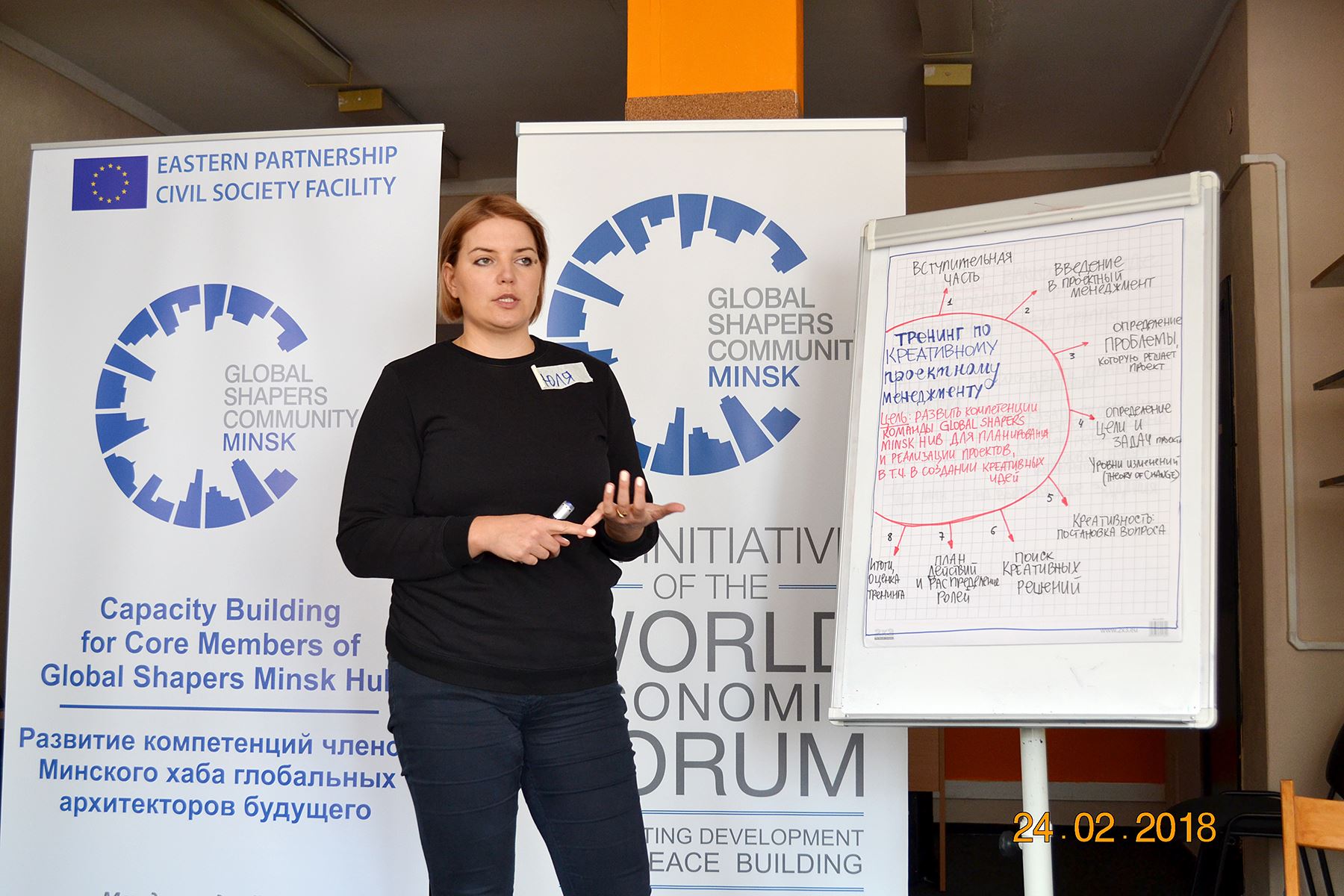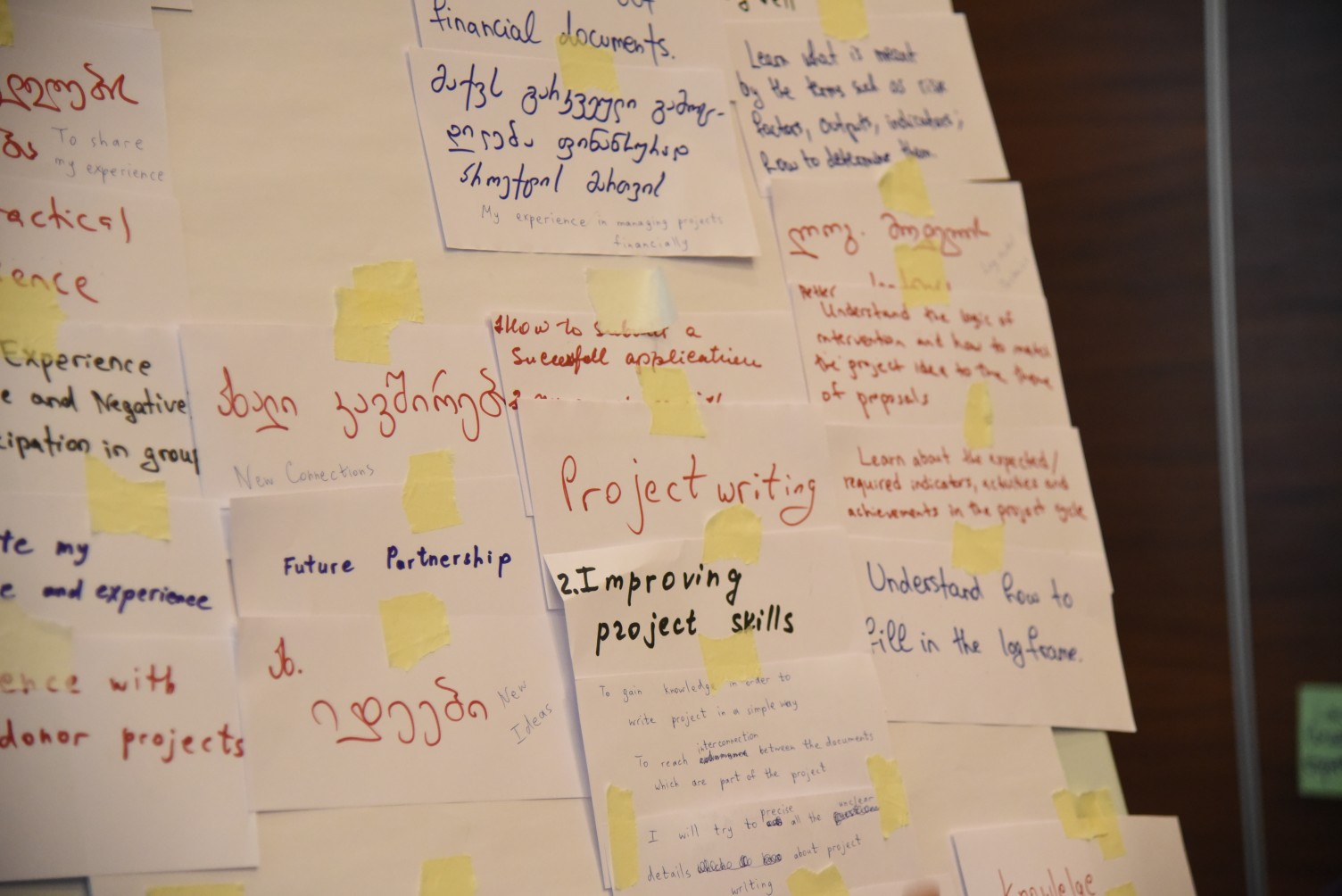1. Description
The European Union is committed to supporting civil society in Eastern Partnership countries. Developing leadership capacities and skills of future civil society leaders is one of the commitments made by the European Union in its policy on achieving ’20 Deliverables for 2020. Focusing on key priorities and tangible results’. Investment in leadership potential is expected to bring high returns in terms of professionalization of civil society organisations and thus, their capacity to engage in constructive policy and societal dialogue in Eastern Partnership countries.
This support is an investment in the development of young current civic activists and civically minded individuals from the EaP region, who display the interest and ability of taking leading roles in the growth of their societies.
The Eastern Partnership Civil Society Fellowships are an integral part of the European Union’s Eastern Partnership Civil Society Facility.
2. Objectives of the Fellowship Programme
The fellowship programme aims to identify young ambitious/ high-potential/ forward-thinking civil society activists from the EaP region and support the development of their leadership skills.
3. Eligibility criteria
For applicants:
Young civil society activists/ junior civil society professionals from the Eastern Partnership region who are affiliated with a civil society organisation (including Trade Unions and professional associations) in these countries or have significant experience volunteering or seeking to address problems in the lives of their communities.
The applicants should meet the following criteria:
- be a natural person;
- be a national and/or a resident of one of the Eastern Partnership countries (Armenia, Azerbaijan, Belarus, Georgia, Moldova and Ukraine);
- be between 18 and 36 years old;
- not previously benefited from the fellowship within this programme;
- have a proven track record of working:
- in a CSO including Trade Unions and professional associations or
- taking a leading role in their communities by advancing issues related to health, environment, social development, transparency, etc. in one form or another;
- be committed to values associated with respect for fundamental rights;
- have appropriate language skills for the chosen location of proposed action;
- assuming responsibility for the action proposed and/or showing commitment for the action proposed.
For actions:
The proposed action should focus on a set of activities aimed at addressing problems in the lives of applicants’ communities, regions and countries. The result of the proposed Action should have a positive influence on the development of leadership skills of the Applicant.
The proposed Action should be implemented within 6 months period (starting in May-June 2018) and include realistic and ideally sustainable results.
The fellowship programme will provide support in the following broad areas of activities:
- Collecting local evidence: facilitating fellows to collect and analyse evidence on key issues of public service delivery at local and national level.
- Involvement in policy-making: allowing fellows to gain expertise on specific policy issues, drafting policy papers/recommendations and organising advocacy campaigns; helping fellows get access to government channels in order to better get their ideas across.
- Capacity development: supporting mentoring and job shadowing schemes in order to build their capacities, so that they in turn transfer to other members of their organisations.
- Involvement in monitoring local governance activities and performance: supporting fellows in developing a multitude of monitoring activities.
- Improvement of CSO/Trade Unions/Professional associations accountability and link to their target groups/ members: supporting fellows in improving the accountability mechanisms of their organisations and developing better linking activities to citizens’ needs.
- Cooperation between CSOs/Trade Unions/Professional associations: allowing fellows to organise activities bringing various organisations together on issues of common interest.
- Innovation for development: utilize or develop ideas for specific ICT solutions for eTransparency and eParticipation in order to contribute to the improvement of dialogue and partnership between civil society and governments in the EaP countries.
For funding
The maximum amount of financial support available within the Fellowship Programme is EUR 5,000 per person.
This amount shall cover:
- specific activities outlined in the application submitted by the applicant;
- travel and accommodation expenses for activities to be carried out within the host country;
- service/mentorship fees for hosting organisation, if required.
NOTE: In the case of proposals involving learning and mobility, the host organisations based in the EU Member States will facilitate the visa support. However, the applicants are expected to cover consular fees from the fellowship funds.
4. Number of fellows to be selected
20 fellows will be selected within EaP Civil Society Fellowship Call 2018.
5. Indicative time-schedule for 2018 call
The 2018 Call will be launched on Monday, March 5, 2018 with the deadline for submission of applications in electronic format on Monday, April 9, 2018, 12.00 CET.
The Guidelines for Applicants will be available at www.fellowships.eapcivilsociety.eu during the first week of March 2018.
Download this Forecast as a PDF file: EaP CS Facility_FORECAST 2018 Call




